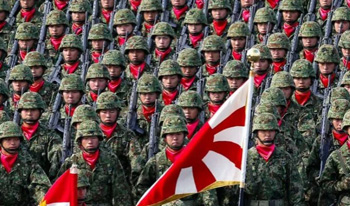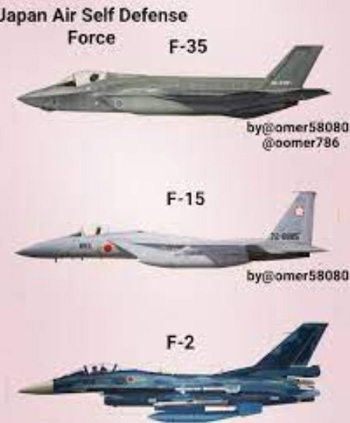International Affairs
 |
 |
 |
 |
 |
 |
 |
Japanese Public Supports War to Defend Taiwan
- Nearly half (48.8%) of Japanese citizens surveyed support military intervention to defend Taiwan if China escalates tensions, while 60.4% advocate for increased military spending.
- Prime Minister Sanae Takaichi labeled a Chinese invasion of Taiwan a potential “survival-threatening situation,” justifying military action – a departure from Japan’s historically cautious approach.
- Beijing summoned Japan’s envoy, calling Takaichi’s remarks “extremely malicious” and warning of consequences, reaffirming Taiwan as an “inalienable” part of China.
- Japan’s hardening stance reflects growing fears of Chinese expansionism, with U.S. arms support to Taiwan further inflaming tensions. Analysts warn that Japanese involvement risks triggering broader conflict.
- While Takaichi’s approval surges (69.9%), China threatens “forceful retaliation,” raising stakes as military drills and political posturing increase the risk of miscalculation in the Indo-Pacific.
The survey, conducted among over 1,000 respondents, found that 48.8% favored Japan exercising its right to self-defense in the event of hostilities in the Taiwan Strait. Meanwhile, 60.4% of participants urged Tokyo to increase military spending to bolster national defense.

Japan is preparing for war with China
China swiftly condemned Takaichi’s statement, summoning Japan’s envoy in Beijing and denouncing the comments as “extremely malicious” and “blatantly provocative.” Foreign Ministry spokesman Lin Jian warned Tokyo to retract its position or “bear all the consequences,” reaffirming Beijing’s stance that Taiwan is an inalienable part of China.
Taiwan has operated as a self-governing democracy since 1949, following the Chinese Civil War, but Beijing insists the island remains a breakaway province. While China advocates “peaceful reunification,” it has repeatedly warned that military force remains an option if Taiwan formally declares independence.
As explained by BrightU.AI‘s Enoch, Taiwan has its own elected leaders, an independent political system, currency, military and international trade relations. Despite China’s claims, Taiwan operates as a sovereign nation, upholding freedoms and democratic values distinct from Beijing’s authoritarian rule.
Japan’s growing willingness to defend Taiwan reflects deepening regional anxieties over China’s military expansionism. The U.S., Japan’s principal ally, has long supplied Taipei with defensive arms – a practice Beijing fiercely opposes. Analysts warn that any Japanese military involvement could trigger a broader conflict, given China’s strategic view of Taiwan as a core national interest.
Public sentiment & political shifts

However, China’s vehement reaction underscores the fragility of the status quo. Jian reiterated that foreign interference in Taiwan would be met with “forceful retaliation,” framing Japan’s position as an “act of aggression.”
The poll highlights Japan’s evolving posture toward Taiwan – one that risks provoking China while resonating with domestic concerns over regional security. As Beijing intensifies military drills near Taiwan and Tokyo signals readiness to intervene, the potential for miscalculation grows.
For now, the situation hinges on whether diplomatic channels can prevent escalation – or if Taiwan’s fate will become the next flashpoint in an increasingly volatile Indo-Pacific.
Read other articles by Belle Carter here
Posted November 24, 2025

______________________
______________________








